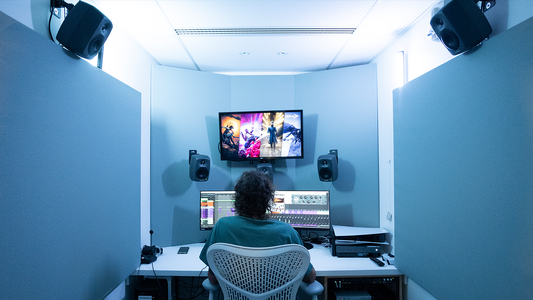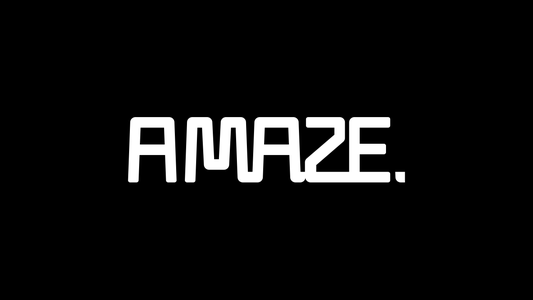It’s easier than ever before to make games, but almost impossible to sell them: this is today’s narrative when it comes to the video games industry. That is why it’s understandable why so many indie teams strive to find publishers, without a clear understanding of what it is they need help with and what are they willing to give in return. Luckily people like Brandon Sheffield try to provide more knowledge regarding publisher usefulness and this piece is a result of my wish to complement that great article. So here is a small and imperfect primer to help you think about the whole publisher nebulae.
Evaluate yourself and your work
Whatever you do in life, if you seek to make a deal, it’s common sense to understand the value of what you are offering. A lot of indie teams get together and develop a game out of passion. It might be a fun mechanic discovered through a game jam. It might be an idea that haunted you for a long time, and you managed to inspire others with it. Whatever the reasoning behind it, the fact is that if you have something playable, you have invested at least some time in it. If your team is bigger than 1, your team mates also invested time in it. And depending on your level of seniority, commitment and business sense, you might have invested money in it, too. If you are at a point to consider a publisher deal with that game, you need to know it’s value.
Here is one way to estimate the worth of your game:
List down everything you ever bought to make the game. This includes licenses, hardware, that asset bundle from the Unity store, your website domain, your rent, your phone bill, and so on. Its best to split those expenses into One Time and Recurring (monthly) so you can later forecast your running costs.
Calculate how much time you and your team put into this game. Are you 3 people working on it 2 hours a day for 6 months? That’s (3 x 6)*20% = 3.6 full time man months of work.
Estimate a base salary for each member of your team. If you have never made a game before, and especially if you never had a job before, make extremely conservative estimates because you cannot compare yourself with a developer that passed a job test and works day in day out with his experienced colleagues to churn out awesome game bits. Based on you and your team location, take into account taxes, too. What you should wish to estimate is how much you as an employer would pay for everyone involved in your game
Multiply (base salary) x (time), then add the other expenses and there you go, you have an estimate
Pro tip: The more time you invest in keeping track of your expenses and work, the more accurate the estimated value.
Now you have a rough number, but especially if you do not have experience, you might not be able to evaluate your game properly. Is it truly fun, innovative, beautiful? Ask! If you discover that a large number of random strangers can check out your game and give you a thumbs up, then you are on the right path. Not only because you are proven right (confidence bonus, also handy to solidify your team), but also because you can use this number, too, in your business deal.
Identify what you need from a publisher
Now you know how much your game costed so far and you also have a bunch of random strangers who expressed their wish to buy it. If you are thinking about a publisher, you probably need money in some form. Here is my take to evaluate the needs:
Someone to pay “development money”
This case occurs typically when you are starving, when you are about to be kicked out of the house for not paying rent, when your brilliant artist threatens to leave if he does not get paid, and other similar situations. So you start to ask:
Why are you in this situation in the first place? It is important to think about it and understand why.
How long do you still need to finish the game? This is the period of time that stresses you into asking for development money, right? So you need to know how much to ask, and you also need to rely on that, because if you ask for 3 months and you end up working 12 months, you might find yourself back in that situation and with no way out.
Are there any other ways to get those money, such as, generous aunt, loans from friends, a bank loan, selling your car, and of course, crowdsourcing. As Sheffield wisely points out, “If you can crowdfund or bootstrap your game, most publishers will be of limited use to you.”
As a rule of thumb, no publisher will ever give you money out of the goodness of their hearts or because they are simply stunned by the awesomeness of your game. Publishers are businessmen and you are looking for a business deal, so whatever they offer, they expect to get back multiplied.
Someone to make your game known
You are close to release but no one knows about your game. You need help, but…
Really?
Why do you panic about this now? You should have known that you cannot promote your game a long time ago. There are many ways to generate a community and tell the world about your game, and only one of them involves you stepping out of your comfort zone and pushing cheesy promo messages on Twitter, Facebook and other social sites with zero effects. Other ways are:
identify who in your team is passionate about this, clear off his plate and then offer as much support for that as you can for marketing;
find someone outside your team that is good at that and ask if he can help you; explore the option of actually paying someone for that, it might be very cheap
show your game in places where a lot of people gather (there is a wide range of events and costs involved, from your local festivals to the classical and very expensive industry trade shows)
talk to your local municipality and see if there is any help; sometimes, cities and countries have their own pavilions at big trade shows and you might tag along and participate in that
get creative and find your own solutions. Do share if they work.
All of those early ways are generally Far Cheaper than asking a publisher to do your marketing.
Furthermore, think a little about what this marketing thing means to you. At least in theory, you market a product in order to sell more units, and the traditional role of a publisher is to drive unit sales for your product. What’s the point of spending to see your game at huge conventions and featured in impressive media if this does not result in any sales?
Someone to help you with Other Stuff
Publishers can be of Extreme Help, if you know what to ask and if you know what you need. Assisted by my friend Fulvio Tagliento who has over a decade of experience in the industry, here are a few subjects to consider:
QA
Buggy games don’t sell well.
Your clients can play in a variety of conditions that are impossible for you to foresee or recreate. Especially if you develop for PC, they come in about as many hardware configurations as the stars in the sky. You might also want to stress test your systems, plus, if you develop for consoles, there are a whole bunch of technical requirements you have to pass. So QA is not a trivial task. Depending on the scope of your game, it can be extremely wise to want a publisher’s help with that.
Good publishers typically work with established service providers who have large and seasoned QA teams that will test the hell outta your game in your post production phase. This can mean dozen to hundred of people who play your game continuously in your post production phase, and send you detailed reports with reproduction steps and screenshots and system configs so you can fix the problem before making your players unhappy.
Localization
60% of Steamers use the platform in another language than English. While it is easy to forget, the most common language of gamedev is not even the most spoken one worldwide. You might want to make it easy for your Russian, Chinese, German, Spanish, Polish fans to try out your game, thus expanding your reach substantially. Good publishers can really help with that.
Typically, established publishers work with service providers who have localization teams ready to not only translate your game properly, but also test it to ensure all languages behave properly with your menus, buttons, dialogues, voices and what not.
Fun Fact (thanks Fulvio!): The correct spelling in US is “localization”, while in UK you should write “localisation”. I chose the US version, and I don’t know English well enough to know if this is the right choice!
How to evaluate a QA and/ or Localization offer
There are quite a lot of companies who offer QA and Localization services. Here are just a few examples. There are very few publishers with internal QA and localization teams. Many publishers are intermediaries between you and those companies without you even knowing.
These companies do not market themselves as publishers, which is nice, because they are not looking for a stake in your game or your company.
For localization, they usually ask the amount of words in your game and in how many languages you want them translated. Then you receive an offer that includes a cost per language per word, as well as a few hours of project management for your team of translators.
For testing, they typically evaluate your game and provide you with an estimated number of hours for a QA pass, and then ask you for how many testers and how many hours/ passes you want. They also work with you to identify the hardware of your largest market, and provide those configurations.
If you need QA and localization services, you can cut costs by contacting service providers yourself or pay more for a publisher to do that for you. If you are determined to go with a publisher, it is still wise to ask for an offer from a service provider, so you hav









































